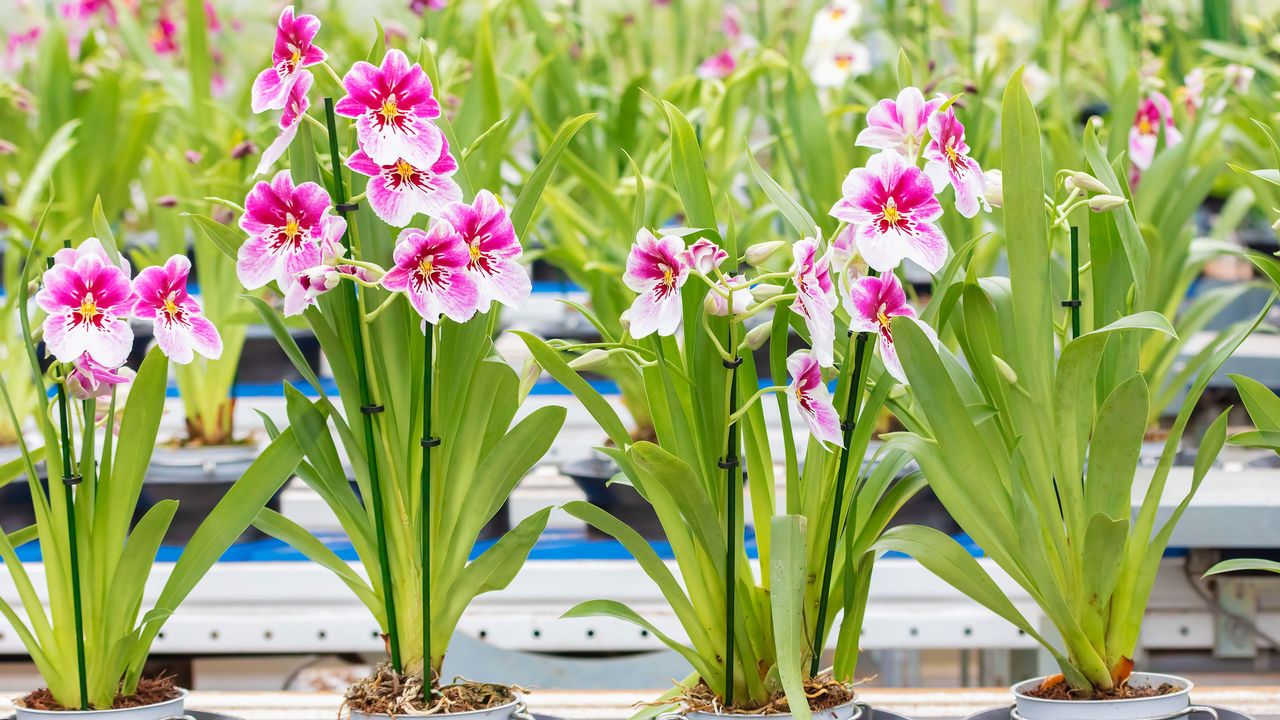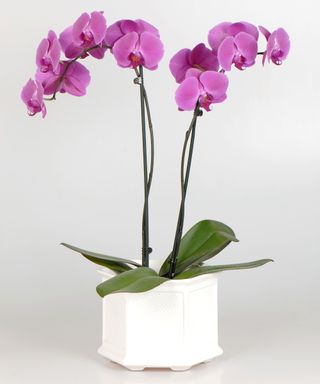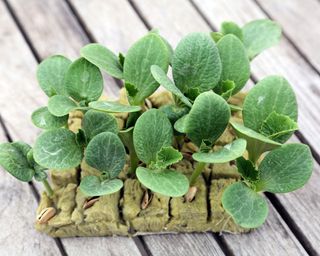Why gardening expert James Wong says rockwool could be the new compost
The British ethnobotanist says that this mineral-based material typically used for insulation could give plants the best start in life


Even British gardening pro James Wong was surprised to learn that rockwool, more commonly used for insulating homes, but long-established as a plant medium in hydroponics and commercial horticulture, is being trialled as an innovative way to raise tricky species such as orchids.
James has written about his experience visiting specialist growers in Europe, where they are experimenting with adding 1cm tiny cubes of rockwool to the compost in pots of these delicate blooms, with favourable results so far.
So could this material change the way we look at composting methods in the future?

Rockwool is being used as a method of aiding the growth of tricky plants such as orchids
What is rockwool?
Rockwool is a material made by melting down basalt rock and spinning the molten mass into a soft, spongy wool-type material. When rockwool is used in hydroponics, it’s either in plug form or large bricks that allow water and plant nutrients to drip through. Commercial growers often use rockwool for raising tomatoes.
However, as James noted when writing in The Guardian about the rockwool experiments, this is all about finding a new way to compost by mixing up the cubes of rockwool with the compost to create tiny water-retaining sponges.
'This mix of air and water creates the paradoxical conditions many tricky-to-grow species need in order to thrive,' said James. 'Consistent access to an even level of moisture, yet simultaneously perfect drainage and continual air flow.'

James Wong at The Chelsea Flower Show
The case for using rockwool as compost
The main argument in favor is that unlike naturally occuring peat or coir, rockwool does not need to be grown and harvested, so the process won’t decimate natural habitats.
With a ban on the sale of peat-based products for private gardens from 2024 in the UK, and the growing demand for peat-free compost, could rockwool offer another viable alternative too?
'Rockwool has a high-water retention capacity while maintaining aeration and promoting plant growth,' says plant expert and Forbes editor Laurice Constantine.
'It is naturally sterile, making it less susceptible to the transmission of pathogenic germs. Rockwool does not degrade over time because of the irreversible bond. This enables the reuse of rockwool in successive crops.'

Seedlings growing in rockwool
Rockwool compost cons
For now, it’s clear that it's best if the experiment with rockwool is done under scientific conditions, because the fibres in the material can be harmful to human health if ingested.
The mineral content might also upset the balance of your garden, and will not break down organically into the soil. 'Unless it’s properly treated, rockwool is pretty acidic,' says Erinn Witz, garden expert and co-founder of Seeds and Spades, an educational gardening website.
'You can neutralize that, but I would worry about people thinking they could just add rockwool to the compost if they have extra lying around. I imagine that could really throw off your compost’s pH and in turn, alter your garden soil type too.'

Jayne Dowle is an award-winning gardening, homes and property writer who writes for publications including Sunday Times Home, Times Bricks & Mortar, Grand Designs, House Beautiful and The Spectator. She was awarded the Garden Journalist of the Year accolade at the Property Press Awards in 2021.
